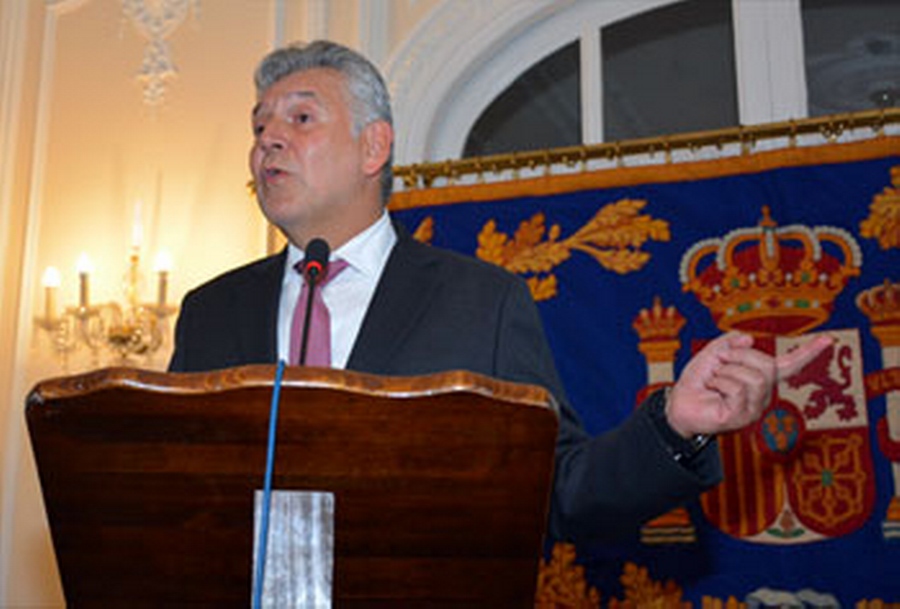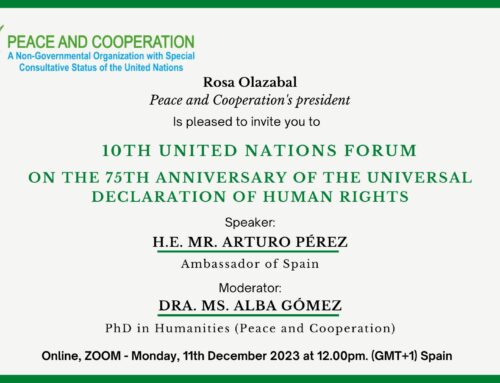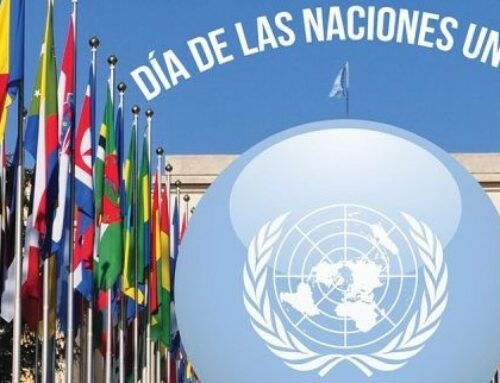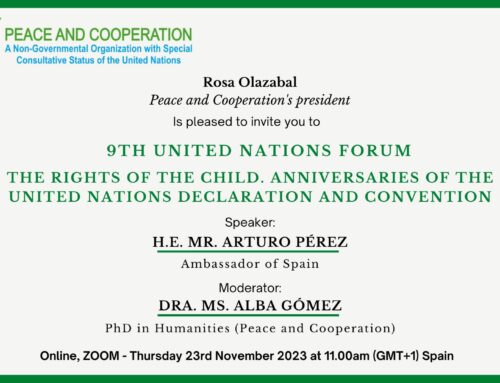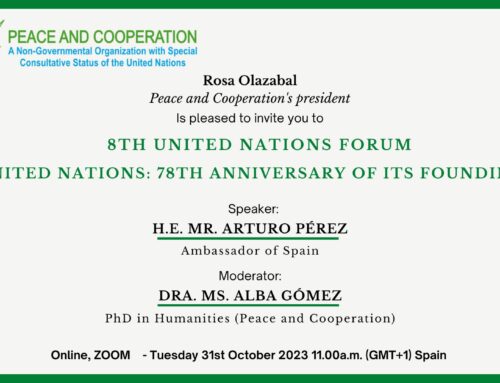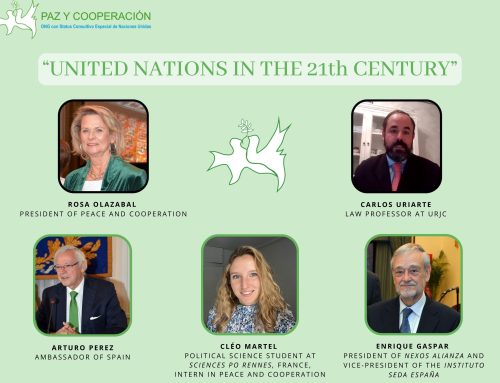On February 6th, 2019, a series of conferences and debates on international issues called the United Nations Forum began. The conference dealt with and debated global issues with Peace and Cooperation and the Centro Riojano de Madrid and the participation of Jaime Alberto Cabal, Assistant Secretary General of the World Tourism Organization (UNWTO).
The president of the Centro Riojano in Madrid, José Antonio Rupérez, although unable to attend due to health reasons, hosted us with great affection in the center and allowed us to enjoy the debate discussing the risks and benefits of global tourism.
Joaquín Antuña, President and Founder of Peace and Cooperation, opened the conference by addressing the current problems of 2019, such as climate change, the greenhouse effect and the emergence of social movements, in which it is important to look to the future and give relevance to international issues. “Is ecology the new religion”, Joaquín Antuña introduced us to the current debate, between the vision that the 21st century is the best century so far, as the Ambassador of India stated in the School Prize for Peace and Nonviolence, organized by Peace and Cooperation on 30 January, or quite the opposite, that devastating pessimism, shown to us by Federico Mayor Zaragoza, at the end of history.
Then, the Deputy Secretary General of the World Tourism Organization, Jaime Alberto Cabal, introduced us to the importance of the UNWTO, characterized by being the organization of the United Nations specialized in promoting tourism that contributes to economic growth, inclusive development and environmental sustainability. Composed of 158 member states, 6 associate members, 2 observers such as the Holy See and Palestine and 524 affiliated members, composed of non-governmental entities, but essential to the functioning of the organization. In turn, its collaboration with UNESCO for the promotion of heritage, culture and tourism. As Jaime Alberto Cabal commented, UNWTO’s current priorities are innovation and digital transformation, investment and support for entrepreneurship, education and employment generation, safe and smooth travel, and the importance of social and environmental sustainability, working together and committed to achieving the SDS (Sustainable Development Goals) and Agenda 2030. According to the data offered at the conference, in 2018 has achieved the record of tourist arrivals in international tourism, 6% more than the previous year and a total of 1,400 million people. According to Alberto Cabal, “tourism is an important locomotive for the world economy”. This can be seen in the fact that the dynamism of the sector has been growing in all areas and continents, and for this reason, tourism has increased worldwide. Tourism is a sector that contributes to cultural and heritage preservation. Economic data such as 10% of world GDP generated by tourism and 7% of world exports, 30% of exports in services, make us reflect on the current importance of global tourism.
But what is behind these figures? What challenges do they bring with them? The great challenges we face are the technological innovation that impacts the sector, the large flows of tourists and the need for sustainable and quality tourism. In order to achieve sustainable tourism, responsibility is shared between tourists, states, local destinations and the private sector, which must contribute to the development of tourism committed to the ODS and Agenda 2030. As for the growth of tourism and the impact of technology, states have to focus on carrying out public policies to manage tourism and leave aside “marketing”, since quality tourism is preferable to quantity tourism, rather than cases of “over tourism” in Barcelona and Venice, which makes the local population see tourism as uncomfortable, leading them to reconsider a new way of dealing with tourism. Nor should we ignore other problems such as the need for accessibility, people with reduced capacity, inclusiveness and gender equity, the need for quality and connectivity, the need for training and education in new skills, and the facilitation of travel thanks to advances in technology, all as new challenges for tourism today.
Without a doubt, it was a conference in which current problems and possible future paths of global tourism were discussed. The next step in the United Nations Forum is “The Chinese Prodigy”, an attempt of cultural and economic approximation between the western world and the Chinese/Confucian world from the vision of Confucianism that will take place in the Centro Riojano in Madrid, on the 20th of March.

